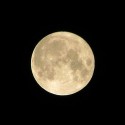31 Mar It’s Time To Stop Blaming the Moon For Hospital Admissions or Births
 MedicalResearch.com Interview with:
MedicalResearch.com Interview with:
Dr. Jean-Luc Margot PhD
Professor, Department of Earth, Planetary, and Space Sciences and Department of Physics and Astronomy,
University of California, Los Angeles
Medical Research: What is the background for this study? What are the main findings?
Dr. Margot: Some professionals who work in emergency rooms or maternity wards believe that the number of hospital admissions or human births is larger during the full moon than at other times. This belief is incorrect. Analysis of the data shows conclusively that the moon does not influence the timing of hospital admissions or human births.
Results of a new analysis have been published online in the journal Nursing Research. The Nursing Research article addresses some of the methodological errors and cognitive biases that can explain the human tendency of perceiving a lunar effect where there is none. It reviews basic standards of evidence and, using an example from the published literature, illustrates how disregarding these standards can lead to erroneous conclusions.
Medical Research: What should clinicians and patients take away from your report?
Dr. Margot: The study illustrates how intelligent and otherwise reasonable people develop strong beliefs that are not aligned with reality.
While I sought to dispel myths about the moon, I was also motivated by the fact that questionable beliefs are at the root of many of society’s worst problems. Could the lessons learned about flawed beliefs related to the moon be applied to a broader context?
Beliefs often dictate actions, and the societal costs of flawed beliefs are enormous.
For example, the recent measles outbreak appears to have been triggered by parents’ questionable beliefs about the safety of the measles vaccine. Vaccines are widely and correctly regarded as one of the greatest public health achievements, yet vaccine-preventable diseases are killing people because of beliefs that are out of step with scientific facts.
Other examples of damaging, flawed beliefs are listed here.
A willingness to engage in evidence-based reasoning and admit that your beliefs may be incorrect will produce a more accurate view of the world. Clearer thinking will enable you to make better decisions, which will improve the quality of your life.
Medical Research: What recommendations do you have for future research as a result of this study?
Dr. Margot: The absence of a lunar influence on human affairs has been demonstrated in the areas of automobile accidents, hospital admissions, surgery outcomes, cancer survival rates, menstruation, births, birth complications, depression, violent behavior, and criminal activity. It’s time to stop blaming the Moon.
The cognitive effects that lead to questionable beliefs are much more complex and interesting than the gravitational force exerted by an ordinary natural satellite. Research efforts devoted to understanding these cognitive biases are far more likely to yield productive results than another study of the imagined influence of the Moon on human affairs.
Citation:
No Evidence of Purported Lunar Effect on Hospital Admission Rates or Birth Rates.
Margot JL
Nurs Res. 2015 Mar 10. [Epub ahead of print]
MedicalResearch.com Interview with:, & Dr. Jean-Luc Margot PhD (2015). It’s Time To Stop Blaming the Moon For Hospital Admissions or Births MedicalResearch.com
Last Updated on March 31, 2015 by Marie Benz MD FAAD
